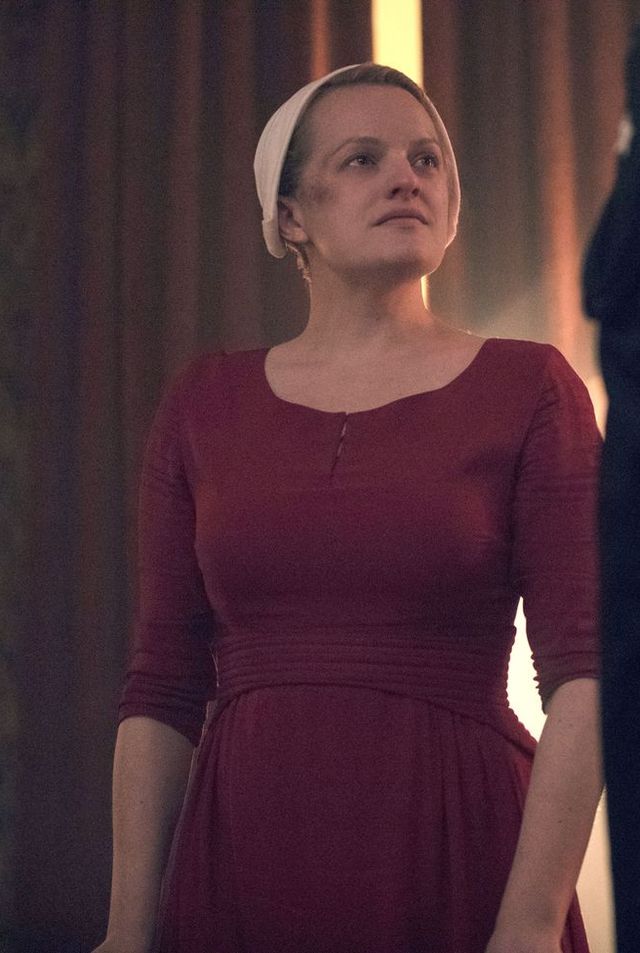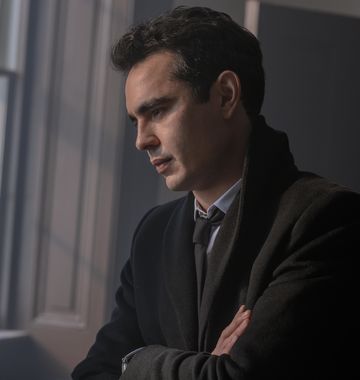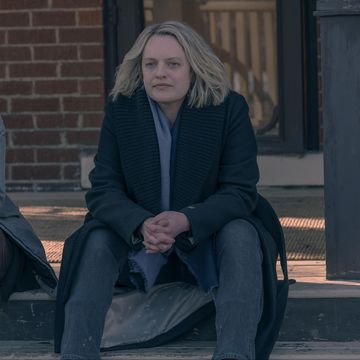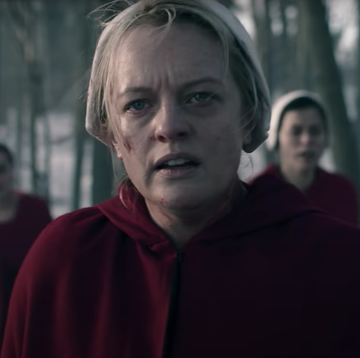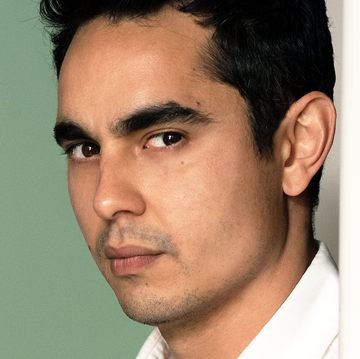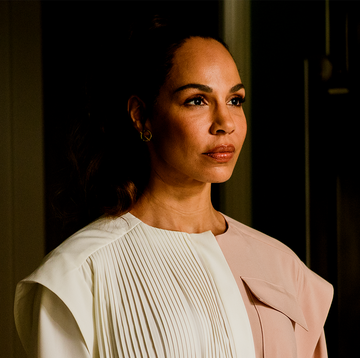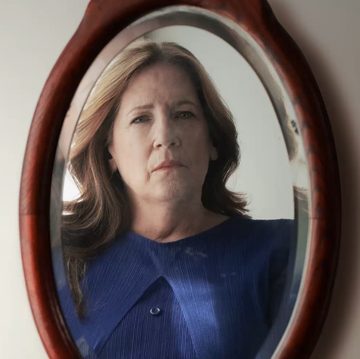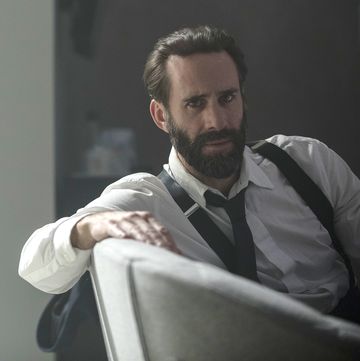There were several moments in the third season of The Handmaid's Tale when Elisabeth Moss's June seemed moments away from death—most notably when Ofmatthew pointed a gun at her mid-rampage. June's rebellion against Gilead has become so overt, it's arguably hard to believe she hasn't ended up on the wall. In this week's Season 3 finale, June is shot during her courageous endeavor to smuggle dozens of children out of Gilead. Though she's shown to still be alive in the episode's final moments, you'd be forgiven for wondering if she'd made the ultimate sacrifice. Moss's stunning performance and voiceover are undeniably the anchor of the show and provide our eyes into Gilead, but as the storytelling has expanded to follow more characters across the border, some fans have wondered whether June is permanently safe.
When BAZAAR.com sat down with showrunner Bruce Miller to break down Season 3's twisty, unexpectedly hopeful finale, we asked whether the show could ever expand beyond June to become more of a true ensemble. Could it evolve to the point where June no longer appears in every episode, and follow multiple protagonists into different parts of Gilead, Canada, and beyond? Could the show conceivably go on if June were to die? In response, Miller gave a definitive answer that will change the way you see the show.
"It'll always stay June's story," he said. "The show is all from June’s point of view—all of it, including scenes with other people. Those are scenes where either she knows those people well enough to piece together what would have happened, or at some point afterwards, someone who was there told her what happened. Every single thing we see is something she either knows or would know, because she's telling us this story." So yes, this means all the scenes we've seen in Canada with Luke and Moira and Emily—not to mention the many private moments between characters like the Waterfords—are being filtered through June's POV. Anyone else want to immediately start a full rewatch of the show with this new perspective in mind?
"The voiceover is her memoir," Miller continued. "My intention is that the show will always be in June’s point of view. Part of what makes the show so scary is that limited perspective." He went on to explain that the show's vision of Gilead relies on the sense that information is scarce, and June's narrow, sometimes tunnel-vision perspective is designed to represent a larger truth about how totalitarian states work. "We're so used to having so much information about what's going on in the world via the Internet. When I read books about the beginning of Nazi Germany, all of a sudden there was no news coming from the outside, and your perspective completely changes in a time where you don't know anything except what's in the government-run newspaper."
So there you have it. The Handmaid's Tale will remain one very particular Handmaid's tale, and everything we see in the show is either something that June witnessed, something that was described to her, or something that she's imagining based on her knowledge of the people involved. If you're wondering what all of this means for Nick, who's been strikingly absent from the show since midway through the season, you can read Miller's answer to that question over here.
